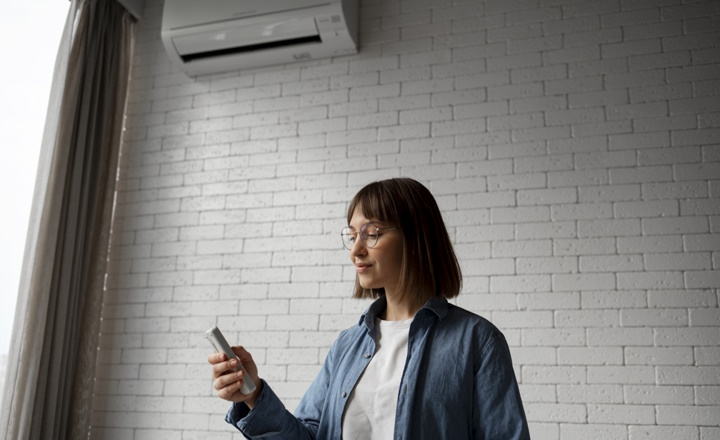
Maintaining a comfortable indoor environment throughout the year depends heavily on having a reliable and efficient heating and cooling system. Whether you're battling the chill of winter or the sweltering heat of summer, the right system can dramatically improve your quality of life, energy efficiency, and utility costs.
As technology continues to evolve, modern climate control systems offer more than just temperature regulation. They play a critical role in air quality, humidity control, and energy management, especially in homes and businesses that strive for both comfort and sustainability.
Why Heating and Cooling Matters
The primary role of heating and cooling systems is to keep indoor spaces at a comfortable and consistent temperature. However, they also influence the air quality, noise levels, and energy consumption within your home or office. A properly designed and well-maintained system doesn't just keep you warm in winter and cool in summer — it creates a healthier and more cost-effective living environment.
For families with elderly members, small children, or people with respiratory conditions, consistent temperature control can be crucial to overall health and well-being. In workplaces, effective climate control can boost employee comfort and productivity.
Types of Heating and Cooling Systems
There are several types of heating and cooling systems available today, each designed to suit different property sizes, budgets, and climate conditions. These include split systems, ducted systems, reverse cycle air conditioners, hydronic heating, and evaporative coolers.
Split systems are popular for individual rooms or small spaces. They’re relatively easy to install and offer good energy efficiency. Ducted systems, on the other hand, provide whole-house temperature control and are often preferred in larger homes or commercial spaces.
Reverse cycle air conditioners are highly efficient because they combine both heating and cooling functions in a single unit. They’re a smart option for areas that experience both hot summers and cold winters. Hydronic heating systems use heated water to warm spaces, offering a quiet and even form of warmth that’s ideal for allergy sufferers.
Energy Efficiency and Cost Savings
One of the biggest concerns for homeowners and business owners alike is how much it costs to run heating and cooling systems. The answer largely depends on the system’s energy efficiency, the size of the area being conditioned, and how well the property is insulated.
Modern systems come with energy ratings that help you understand their consumption patterns. A system with a higher star rating typically uses less power, which translates to lower electricity bills. Smart thermostats and zoning features can further improve efficiency by allowing you to control temperatures in different parts of the building independently.
Regular servicing and maintenance are also key to ensuring your system runs efficiently. Dirty filters, blocked ducts, and worn components can force the system to work harder than necessary, increasing energy use and shortening its lifespan.
Climate Considerations
Your location and local climate play a huge role in determining the best heating and cooling solution for your needs. In colder regions, systems that focus on effective heating, such as ducted gas heating or hydronic systems, are often preferred. In warmer areas, evaporative cooling systems may be more suitable due to their lower operating costs and ability to cool large spaces with fresh air.
For areas with varied climates, a reverse cycle system is a flexible and efficient choice. These systems automatically adjust between heating and cooling as needed, offering year-round comfort without the need for separate units.
Indoor Air Quality and Comfort
A lesser-known advantage of modern heating and cooling systems is their impact on indoor air quality. Many systems include advanced filtration systems that trap dust, allergens, and even bacteria, helping to maintain a cleaner indoor environment.
Humidity control is another important factor. Systems that regulate humidity help prevent the growth of mould and mildew, especially in areas with high moisture levels. This is particularly important in homes with timber flooring or furniture, which can be damaged by excessive humidity.
Installation and Professional Guidance
Choosing the right heating and cooling system isn't just about brand or cost — it requires a proper understanding of your space, usage patterns, and long-term needs. That’s why professional installation and consultation are vital.
Licensed technicians can perform load calculations to determine the correct system size and recommend the most suitable model based on your preferences and budget. They also ensure the installation complies with all relevant safety and building codes, which can prevent costly issues down the line.
Maintenance and Longevity
Just like any other mechanical system, your heating and cooling equipment needs regular maintenance to perform at its best. Simple actions like cleaning filters, checking for leaks, and scheduling annual inspections can extend the life of your system and prevent unexpected breakdowns.
Many providers offer service contracts that include regular check-ups and priority service in case of emergencies. These plans offer peace of mind, especially during peak seasons when service requests are at their highest.
Sustainability and Eco-Friendly Options
As energy costs rise and environmental concerns grow, more property owners are looking for eco-friendly heating and cooling solutions. Solar-powered systems, geothermal heat pumps, and units that use eco-conscious refrigerants are becoming more widely available and affordable.
Government rebates and incentives may also be available for installing energy-efficient systems, helping reduce the upfront cost and encouraging more sustainable choices.
Conclusion
A well-chosen heating and cooling system can transform your living or working environment. With the right advice, proper installation, and ongoing maintenance, you can enjoy comfortable temperatures year-round, save on energy bills, and improve indoor air quality.
Whether you’re upgrading an old unit, building a new home, or simply trying to improve efficiency, investing in the right system is a step toward greater comfort, lower costs, and a more sustainable future.
| < Prev | Next > |
|---|




